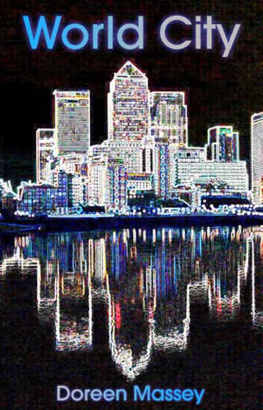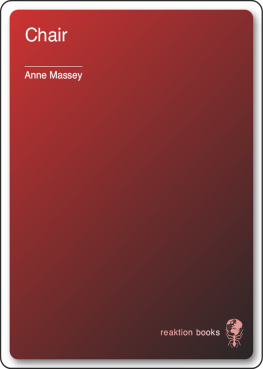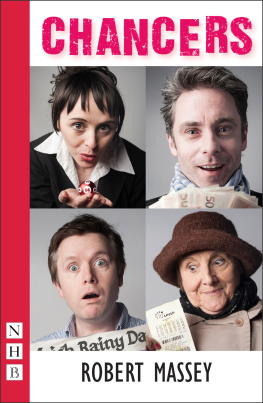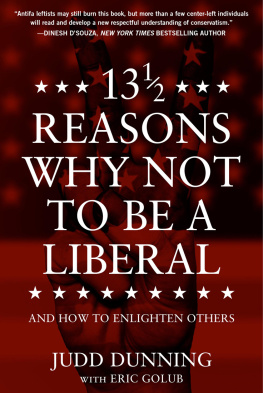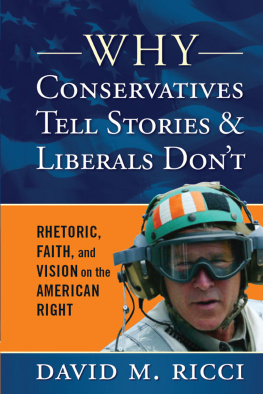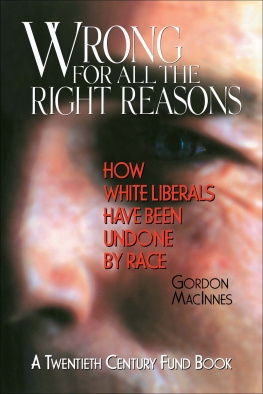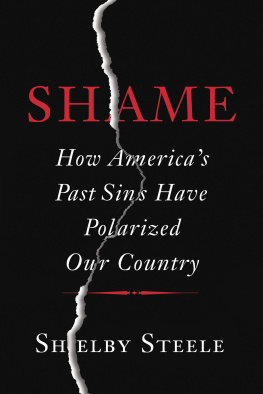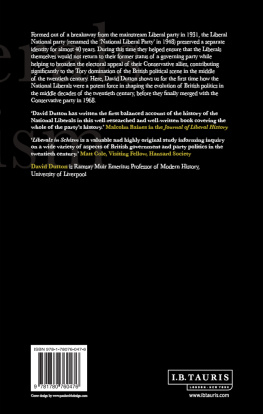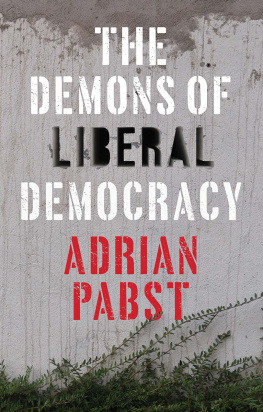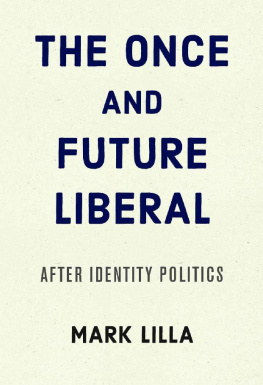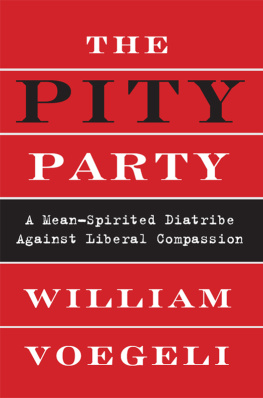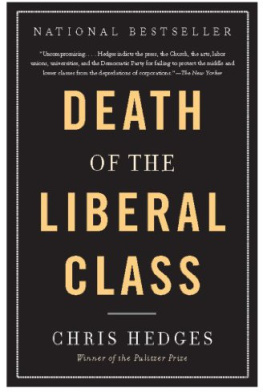Return of the L Word

DOUGLAS S . MASSEY
Return of the L Word

A Liberal Vision for the New Century
PRINCETON UNIVERSITY PRESS
PRINCETON AND OXFORD
Copyright 2005 by Princeton University Press
Published by Princeton University Press, 41 William Street, Princeton,
New Jersey 08540
In the United Kingdom: Princeton University Press, 3 Market Place,Woodstock,
Oxfordshire OX20 1SY
All Rights Reserved
Library of Congress Cataloging-in-Publication Data
Massey, Douglas S.
Return of the L word : a liberal vision for the new century / Douglas S. Massey.
p. cm.
Includes bibliographical references and index.
eISBN: 978-1-40082-651-3
1. LiberalismUnited StatesHistory20th century. 2. LiberalismUnited StatesHistory21st century. 3. United StatesPolitics and government2001- I. Title.
JC574.2.U6M27 2005
320.51'3'0973dc22 2004057502
British Library Cataloging-in-Publication Data is available This book has been composed in Minion
Printed on acid-free paper.
pup.princeton.edu
Printed in the United States of America
1 3 5 7 9 10 8 6 4 2
Dedicated to Susan Tufts Fiske

Contents

Preface

I decided to write Return of the LWord after witnessing congressional Democrats lose the elections of 2002. I had been dismayed in 2000 when the party stood idly by and allowed thousands of voters to be disenfranchised without significant protest, but I had hoped that Democrats would return to a serious politics of opposition during the midterm elections. I was disappointed. Indeed, Democratic candidates didnt seem to stand for anything, at least anything they could communicate coherently to voters. As George H. W. Bush might have put it, they lacked the vision thing.Without a clear message, candidates fell back on the dubious strategy of feinting rightward and portraying themselves as kinder, gentler, and more governmentally competent versions of Republicans. Running in terror from the word liberal, they allowed conservatives to appropriate a proud label once embraced by Americas greatest leadersTheodore Roosevelt,Woodrow Wilson, Franklin Rooseveltand turn it into a shameful epithet with the moral valance of a crack whore.
I was mad. Liberal Democrats had ceased to lead. They had become followers, weakly appropriating the slogans of Republicans and serving up focus-group bromides in a desperate but insincere attempt to attract voters. Faced with a choice between Republican candidates who argued from principle and Democrats who lacked clear convictions, voters rationally chose principle over pandering. Although they often disagreed personally with elements of the Republican political program, voters nonetheless preferred Republicans. At least the Republicans articulated a principled, logical, and convincing political program. How much faith can one place in the moral character of candidates who are unable to state clearly their own convictions?
I wanted to address the political fecklessness of the Democrats. At every level and at every juncture in the 2002 campaign, progressive candidates were outmaneuvered by more effective organizations and conservative strategies. It was as if liberal Democrats had been run over by a speeding locomotive. Rising stunned and bleeding from the tracks, they stood gaping as the Republican campaign engine raced away with yet another election. No loss was more poignant than that of Max Cleland, a popular Democratic senator who left three of four limbs in Vietnam but who nonetheless fell victim to a conservative smear campaign impugning his patriotism.
I was also driven to write by my lingering irritation with liberals who continued to support Ralph Nader, friends and colleagues who argued that there was no difference between the major party candidates and that a vote for Nader was a vote for liberalism, as if voting for the highest office in the most powerful country on earth was simply another expression of lifestyle preference. Insisting on the right to vote for Nader was like rearranging deck chairs on the Titanic. Vote for change, my Nader-supporting friends told me. Well, Naders voters gave us change in abundance after 2000, and here he came again as the nation geared up for the 2004 campaigns.
I thus resolved to lay out a political agenda to serve as a basis for a liberal revival. My first goal was to review the prior tactical misjudgments and political mistakes that Democrats had made to transform themselves into the minority party. Liberals had to realize it was not all the Republicans fault and not just a bad dream. Without a vigorous and effective counter-campaign, the American electorate was not magically going to come to its senses and return to the Democratic fold. Democrats had definitively lost all three branches of government and they would not return to power until they recognized their mistakes and learned from them. Attempting to appropriate conservative ideas to deflect attacks from the right was a strategy doomed to failuremoving farther and farther rightward only skewed the center. Democrats would achieve success only by identifying their political base, articulating a coherent ideology to appeal to it, and then working assiduously to expand it.
In order for this sort of transformation to occur, the word liberalmust become a source of pride rather than an emblem of shame. Such a change requires formulating a reasonable political program that can be communicated to voters in plain language to help them understand how liberal policies serve their own best interests. Pointing out the shortcomings and inconsistencies of the conservatives is not enough. Bad ideas are rarely jettisoned because their flaws are known. They are only replaced when better ideas are put forward to take their place. I thus sought to rethink the foundations of American liberalism, moving away from its obsession with identity politics and political correctness and toward a pragmatic materialism that could explain to ordinary people how, by embracing liberal values, they could improve their own welfare. If the Democrats are ever going to win again, they must move beyond a politics of guilt and blame to one of hope and inspiration.
I also wanted to make Democrats in general and liberals in particular understand what they were up against in the conservative movement, to lay out in detail the remarkable structure and organization of what Hillary Clinton termed the vast right-wing conspiracy. I felt that until liberals understood the unity of purpose, coordination, and resources of the conservative machine, they would continue to fight ineffectually among themselves and stumble blindly into conservative sucker-punches time after time. Liberals had to realize they were facing an implacable, determined, and well-prepared enemy, not an uncoordinated mob of ignorant, redneck hicks. Underestimating the enemy is the first and deadliest sin of political warfare.
Next page

